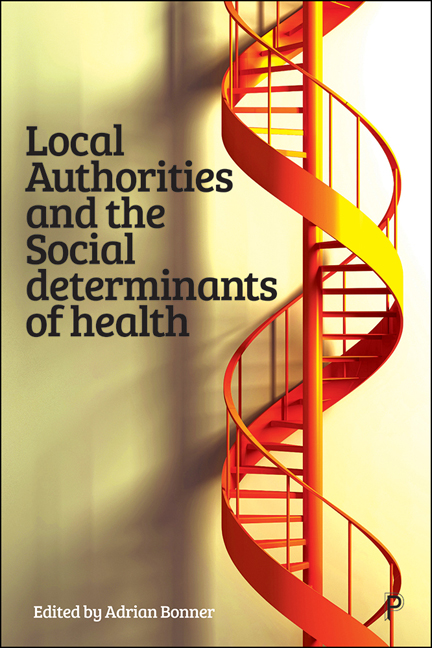Book contents
- Frontmatter
- Dedication
- Contents
- List of Figures, Tables and Boxes
- Notes on Contributors
- Acknowledgements
- Foreword
- Summary
- Introduction: Key Sociopolitical Changes Affecting the Health and Wellbeing of People
- Part I Health, Social Care and Community Wellbeing
- Part II The Role of Local Authorities in Promoting Health and Wellbeing in the Community
- Part III Local Authority Commissioning
- Part IV The Third Sector
- Part V Socio-Economic Political Perspectives
- Conclusion
- Appendix: COVID-19 Timeline
- Index
3 - Health and Social Care Systems
Published online by Cambridge University Press: 25 March 2021
- Frontmatter
- Dedication
- Contents
- List of Figures, Tables and Boxes
- Notes on Contributors
- Acknowledgements
- Foreword
- Summary
- Introduction: Key Sociopolitical Changes Affecting the Health and Wellbeing of People
- Part I Health, Social Care and Community Wellbeing
- Part II The Role of Local Authorities in Promoting Health and Wellbeing in the Community
- Part III Local Authority Commissioning
- Part IV The Third Sector
- Part V Socio-Economic Political Perspectives
- Conclusion
- Appendix: COVID-19 Timeline
- Index
Summary
Introduction
The National Health Service (NHS) has a key role in improving population health in Britain. Yet despite progress, health inequalities persist (PHE, 2018a), as noted in Chapters 1 and 2. Life expectancy has increased for some groups, including those living with complex, multiple and chronic conditions, but others have experienced a widening of the inequality gap (Raleigh, 2018); see Chapters 1 and 2 for a social determinants perspective on health inequalities. The demographic shift towards an ageing and growing population places new demands on the health care system, raising questions about its long-term sustainability (Guzman-Castillo et al, 2017). Successive governments have pursued centralisation, delegation, devolution and privatisation as means of addressing growing demands across the health and social care system (Peckham et al, 2005). Recently, in England, a clear consensus has emerged to embed (public) health in all policies (HiAP), taking into account wider determinants of health and including prevention (LGA, 2016). Local Authorities (LAs) are seen to be uniquely positioned to facilitate this transformation, being close to local communities with an understanding and responsibility for issues such as environment, employment, housing and education. These socio-economic factors are seen to significantly impact on people's health and wellbeing in a way that the NHS cannot address alone. The NHS Long Term Plan (NHSE, 2019) and the earlier ‘Prevention is Better than Cure’ document (DHSC, 2018) set out the government's ambition to reshape the existing health care model by strengthening public health and prioritising primary medical and community health services. Central to this are Integrated Care Systems (ICSs), planned to be in place across the whole of England by April 2021, which provide a stronger basis from which the NHS, LAs and other organisations can work together on prevention, wellbeing and health. However, on average, local government spending on services has fallen by 21 percent in real terms since 2009–10 and these cuts have not been equally distributed across the country, being greater in more deprived areas (Amin-Smith and Phillips, 2019, p 2).
Against this backdrop, this chapter offers a critical analysis of the role of LAs in relation to promoting health and wellbeing for local communities.
- Type
- Chapter
- Information
- Local Authorities and the Social Determinants of Health , pp. 49 - 66Publisher: Bristol University PressPrint publication year: 2020

